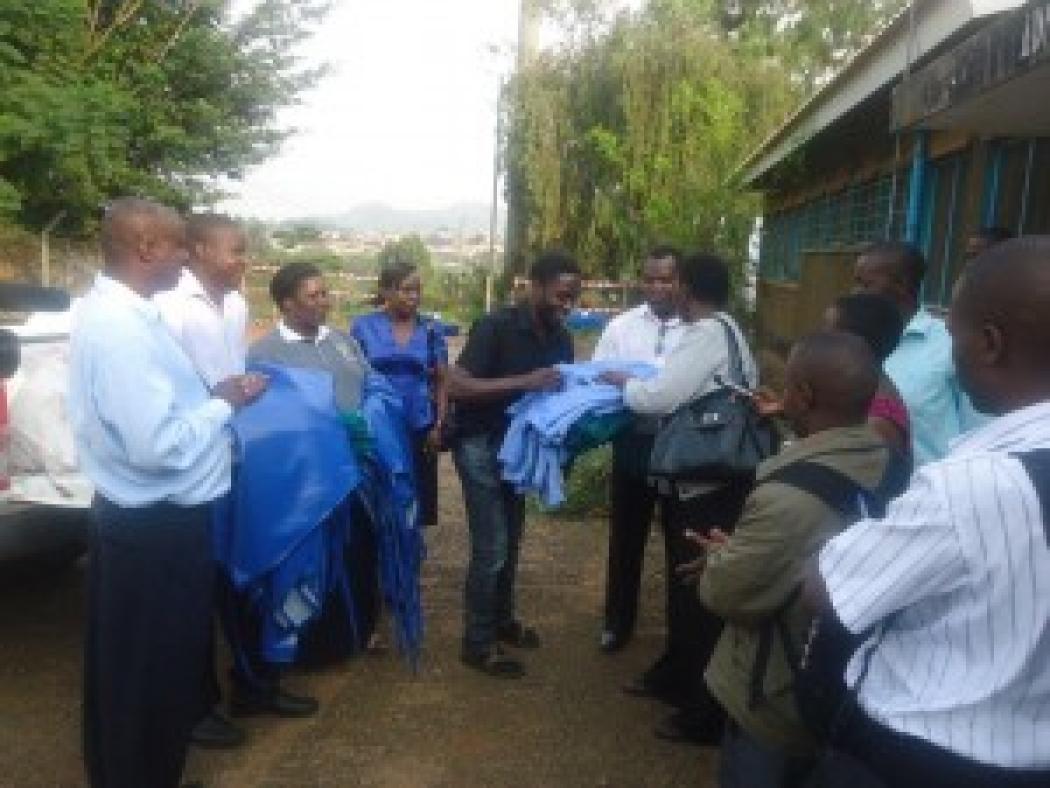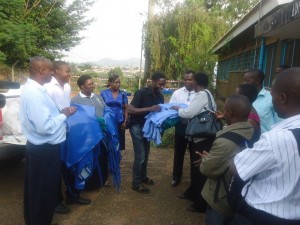Placing their lives on the line to quell an Ebola outbreak

By Kelly Willis, Accordia Global Health Foundation
Outbreaks of the dreaded Ebola virus in the Africa’s Great Lakes region have claimed hundreds of lives in the last 20 years, but thanks to the courageous efforts of United States government-supported frontline health workers like Brenda Picho, an outbreak in Uganda’s Kibaale District in July was quickly contained.
Ebola hemorrhagic fever is a highly contagious disease that causes severe fever, muscle pain, vomiting, diarrhea and bleeding; the disease kills more than half of those infected. There is no vaccine and no known treatment. A rapid and coordinated response is essential in containing these outbreaks – and the outcome is largely determined by actions of the “first responders.”
Among the first responders in Uganda were the frontline health workers of Accordia’s flagship institution based in Kampala—the Infectious Diseases Institute (IDI), Makerere University. IDI staff has been working hand in hand with rural health professionals in Kibaale for years, building their confidence through training and mentorship opportunities, as well as strengthening existing clinical and laboratory systems.
Upon discovering the outbreak, IDI staff immediately began working with local health leaders to organize efforts to contain the disease and protect those most vulnerable to exposure. In no time, emergency supplies had been procured, including protective clothing for frontline health workers most at risk. Prevention measures were demonstrated and isolation facilities were established. IDI staff led efforts to maintain safety standards, provided meals to the hospitalized and quarantined, maintained morale among other health workers, and minimized panic in the community.
At the center of IDI’s efforts was Brenda Picho. A pharmacist by training, Brenda works in Kibaale as part of the U.S. Centers for Disease Control and Prevention (CDC)-supported Saving Mothers, Giving Life project. Her efforts in the community had been focused on reducing maternal mortality by helping mothers during labor, delivery and responding to postpartum complications.
Brenda had heard of a pregnant woman in the community who had died in one of the health facilities and whose family kept getting sick and not responding to treatment. When the clinical officer who provided the family’s care fell ill, Brenda said she became “very alert and concerned.” When the cases were confirmed as Ebola, Brenda said she was “speechless,” adding, “I did not want to believe what I was hearing.”
Her natural fear of this dangerous disease did not stop her and other health workers from putting their own lives on the line to protect the health and wellbeing of others. Brenda’s actions and those of her colleagues are a telling example of how frontline health workers benefit the communities in which they live and work, and ultimately play one of the most essential roles in emergency response.
The U.S. government has a tremendous opportunity to highlight its support of inspiring health workers like Brenda, as well as strategically invest in supporting frontline health workers in the countries with the greatest need.
To read more about Brenda’s personal account of the Ebola outbreak Kibaale and to learn more about how IDI combines expertise in training, clinical care, prevention services, and research to provide fast, effective and comprehensive responses to health emergencies like this, please visit Accordia Global Health Foundation’s website http://www.accordiafoundation.org.

